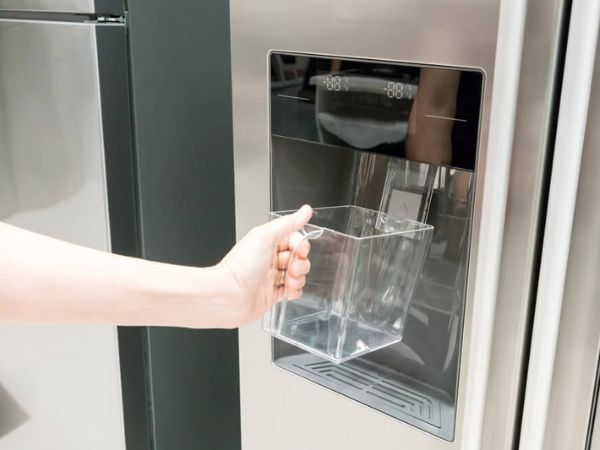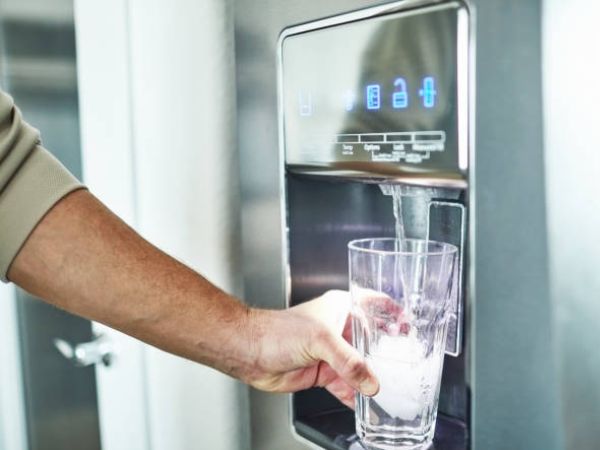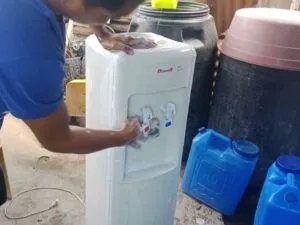Why Is My Ice Maker So Slow?
Having an efficient ice maker is a convenient luxury that many of us enjoy in our homes. However, it can be frustrating when your ice maker starts to slow down, causing delays in providing you with the refreshing ice cubes you need. In this article, we will explore the various factors that Why Is My Ice Maker So Slow? and offer potential solutions to address this issue.
Contents
- 1 Importance of a Fast Ice Maker
- 2 Factors Affecting Ice Maker Speed
- 3 Insufficient Water Supply
- 4 Clogged Water Filter
- 5 Malfunctioning Water Inlet Valve
- 6 Inadequate Freezer Temperature
- 7 Frost or Ice Buildup in the Freezer
- 8 Faulty Ice Maker Motor
- 9 Low Water Pressure
- 10 Ice Cube Size Settings
- 11 Overfilling of Ice Bin
- 12 Aging or Worn-out Ice Maker Components
- 13 Potential Solutions for Improving Ice Maker Speed
- 14 Conclusion (Why Is My Ice Maker So Slow?)
- 15 FAQs (Why Is My Ice Maker So Slow?)
Importance of a Fast Ice Maker
A fast ice maker is essential for several reasons. Firstly, it ensures a constant supply of ice cubes, which is especially important during hot summer months or when hosting parties and gatherings. Secondly, a fast ice maker allows you to quickly cool down beverages or treat injuries with ice packs. Delayed ice production can be inconvenient and hinder your daily routines.
Factors Affecting Ice Maker Speed
Several factors can contribute to a slow ice maker. Understanding these factors will help in diagnosing and resolving the issue promptly. Let’s explore some common culprits:
Auto Amazon Links: No products found. No products found. http_request_failed: A valid URL was not provided. URL: https://ws-na.amazon-adsystem.com/widgets/q?SearchIndex=All&multipageStart=0&multipageCount=20&Operation=GetResults&Keywords=SAMSUNG+Galaxy+S23+Ultra+Cell+Phone|Samsung+Galaxy+s23|Why+Is+My+Ice+Maker+So+Slow%3F|SAMSUNG+Galaxy+S23+Ultra+5G|Galaxy+s23&InstanceId=0&TemplateId=MobileSearchResults&ServiceVersion=20070822&MarketPlace=US Cache: AAL_3f037df91619cfbad9786d967720ca7b
Insufficient Water Supply
A primary reason for a slow ice maker is an inadequate water supply. If the water line leading to your ice maker is partially or completely blocked, the ice production will be affected. Check for any kinks or obstructions in the water line that may be limiting the flow.

Clogged Water Filter
A clogged water filter can restrict water flow to the ice maker, leading to slower ice production. Regularly replace or clean the water filter to ensure smooth water flow and optimal ice making.
Malfunctioning Water Inlet Valve
The water inlet valve controls the water flow into the ice maker. If it is defective or malfunctioning, it can result in reduced water supply and slow ice production. Inspect the water inlet valve and replace it if necessary.
Inadequate Freezer Temperature
The freezer temperature plays a crucial role in ice production. If the temperature is too high, the ice maker will struggle to freeze the water efficiently, leading to slower ice production. Check the freezer temperature and adjust it as per the manufacturer’s recommendations.
Frost or Ice Buildup in the Freezer
Excessive frost or ice buildup in the freezer can interfere with the proper functioning of the ice maker. Regularly defrost the freezer to prevent ice accumulation that can hinder ice production.

Faulty Ice Maker Motor
The ice-maker motor is responsible for initiating the ice-making process. If it is faulty or worn out, it can result in slow or inconsistent ice production. Consider replacing the ice maker motor if necessary.
Auto Amazon Links: No products found. No products found. http_request_failed: A valid URL was not provided. URL: https://ws-na.amazon-adsystem.com/widgets/q?SearchIndex=All&multipageStart=0&multipageCount=20&Operation=GetResults&Keywords=SAMSUNG+Galaxy+S23+Ultra+Cell+Phone|Kitchen+appliances|Galaxy+s23|Samsung+Galaxy+s23|Why+Is+My+Ice+Maker+So+Slow%3F&InstanceId=0&TemplateId=MobileSearchResults&ServiceVersion=20070822&MarketPlace=US Cache: AAL_8682e498fe4682a3a2a5d1c98e56ad3e
Low Water Pressure
Insufficient water pressure can affect the ice maker’s ability to fill the ice molds properly, leading to slower ice production. Check the water pressure in your home and address any issues with low water pressure that may be affecting the ice maker.
Ice Cube Size Settings
Some ice makers offer adjustable ice cube size settings. If the setting is adjusted to produce larger ice cubes, it will naturally take longer to freeze and produce new batches of ice. Consider reducing the ice cube size setting to increase ice production speed.
Overfilling of Ice Bin
If the ice bin is overfilled, the ice maker may sense it as full and slow down or stop producing ice. Empty the ice bin regularly to ensure smooth ice production.
Aging or Worn-out Ice Maker Components

Over time, the various components of an ice maker, such as the ice mold or the control module, may deteriorate or become worn out. This can significantly impact ice production speed. Consider replacing any aging or faulty components to restore the ice maker’s efficiency.
Potential Solutions for Improving Ice Maker Speed
To enhance the speed of your ice maker, consider the following solutions:
- Check and resolve any issues with the water supply line.
- Replace or clean the water filter regularly.
- Inspect and replace a malfunctioning water inlet valve.
- Adjust the freezer temperature as recommended by the manufacturer.
- Defrost the freezer regularly to prevent ice buildup.
- Replace a faulty ice maker motor if necessary.
- Address any low water pressure issues in your home.
- Adjust the ice cube size settings to produce smaller cubes.
- Avoid overfilling the ice bin to ensure continuous ice production.
- Replace aging or worn-out ice maker components as needed.
Conclusion (Why Is My Ice Maker So Slow?)
A slow ice maker can be a frustrating inconvenience, but by understanding the factors that contribute to its sluggishness, you can take appropriate measures to address the issue. Regular maintenance, checking for water supply problems, and ensuring proper freezer conditions are some key steps to improve ice maker speed. By implementing the potential solutions discussed in this article, you can enjoy a fast and efficient ice maker, providing you with a constant supply of refreshing ice cubes whenever you need them.
FAQs (Why Is My Ice Maker So Slow?)
How often should I replace the water filter in my ice maker?
It is recommended to replace the water filter in your ice maker every 6 months or as per the manufacturer’s guidelines. However, if you notice a significant decrease in ice production or a decrease in water flow, consider replacing the filter sooner.
Can a faulty water inlet valve be repaired, or does it need to be replaced entirely?
In most cases, a faulty water inlet valve needs to be replaced entirely. Repairing it may not provide a long-term solution, as the valve may continue to malfunction. It’s best to consult a professional or refer to the manufacturer’s recommendations for proper replacement.
What is the ideal freezer temperature for optimal ice production?
The ideal freezer temperature for efficient ice production is typically around 0°F (-18°C). However, refer to your ice maker’s user manual for specific temperature recommendations, as they may vary depending on the model.
How can I defrost the freezer without damaging the ice maker?
To defrost the freezer without damaging the ice maker, it is advisable to turn off the ice maker and remove any ice or frost buildup manually. Use a soft cloth or towel to soak up excess water, and avoid using sharp objects or scraping tools that could damage the ice maker components.








